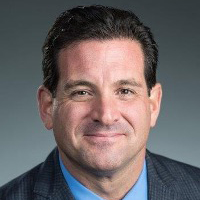According to the U.S. Census Bureau, about 35% of working-age individuals have a 401(K), 403(B) or 503(B) retirement account. These are significant numbers, showing many Americans are taking proactive steps to achieve a successful retirement. However, Americans also change jobs about every five years. What this means is that many Americans often face the decision to roll over their retirement accounts or keep them separate – at least for a time. However, there are good arguments for consolidating your various retirement accounts into as few as possible – and also a couple good reasons not to.
Reasons to Consolidate
Potentially Lower Fees
While workplace retirement accounts are excellent savings tools, they do come at a cost. Someone has to pay the fund managers and administrators to do their job, and that person is you. However, not all 401(K)s or funds have the same fees. So, if you start a new job and see that the fees associated with the 401(K) are significantly lower than your old 401(K), you have the opportunity to reduce your overall investment costs.
You have options beyond transferring your savings into another 401(K). Instead, you can merge your 401(K) funds into an IRA, which usually grants you more control over investment fees and options.
If you don’t think fees can make much difference, let’s look at how just 1% can add up over time. A million-dollar investment account with fees of 1.5% and a Rate of Return of 7% will be worth about $2,917,000 in 20 years. However, that same million-dollar account with fees of 2.5% would only be worth about $2,400,000 in twenty years. Half a million dollars can go a long way in retirement!
Simplified Management
Juggling numerous retirement accounts can quickly become a logistical headache, especially if you’re not well-versed in the nuances of portfolio management. The tasks of monitoring asset allocation, regularly rebalancing your portfolio, determining a comprehensive tax strategy, and adhering to Required Minimum Distributions (RMDs) for each of your 401(k)s and IRAs can feel like a full-time job. As you add more accounts into the mix, the challenge of fully grasping your retirement financial picture intensifies.
You also run the risk of neglecting or even forgetting about one of them. This is no minor concern: by the end of 2021, about 20% of all 401(k) accounts were forgotten by their owners. With so many factors already posing risks to your retirement, the last thing you want to do is throw away your savings.
By consolidating your accounts, you’ll get a clearer picture of your asset allocation, distribution schedule, and tax status. Plus, you’ll significantly reduce the chances of forgetting about an account!
The Pitfalls of Escheatment
Were you aware that the government can seize your hard-earned savings via the principle of Escheatment? This is a legal process where the state takes over unclaimed property or accounts if they are dormant for a set period – it depends on the state – and if the account owner cannot be reached.
So, how do you avoid this? As mentioned above, many Americans simply forget about their retirement accounts. When you finally do remember about an IRA, rather than owing back taxes, you may discover the government took control of it years ago. Good luck getting something back from the government! So, consolidating your accounts into one can reduce the risk of escheatment – after all, you’re sure to remember your primary retirement account.
Streamlined Estate Planning
Ensuring a robust financial legacy is top of mind for many as they plan their estate. However, having a labyrinth of retirement accounts can create unnecessary complexity for your beneficiaries. Navigating multiple IRAs, 401(K)s, and other investment accounts can be confusing, and, again, there’s the risk that some accounts could be overlooked or even forgotten entirely.
By consolidating your retirement accounts, you create a clearer, more accessible financial picture for your loved ones without the hassle of tracking down numerous accounts, each potentially with its own set of rules, regulations, and Required Minimum Distributions.
In essence, streamlined retirement accounts can be a final gift to your loved ones: the gift of simplicity and ease in a challenging time.
Why To NOT Consolidate Your Accounts
As you’ve already read, there are a number of excellent reasons to consolidate your retirement accounts – management simplicity, estate planning efficiency, and the reduced risk of forgetting or losing an account. However, you should be aware of some potential negative consequences of consolidating your accounts.
Protection from Creditors
Different types of retirement accounts offer varying degrees of protection against creditors. 401(K)s and other retirement plans created under the Employee Retirement Income Security Act of 1974 are completely protected from bankruptcy and creditors. Individual Retirement Accounts, both traditional and Roth, are protected, but not completely. As of 2023, for traditional and Roth IRAs, up to $1,512,350 is protected per individual (not per account), with adjustments for inflation made every three years. SEP and SIMPLE IRAs are fully protected, though.
Flexibility for Early Retirement
The Rule of 55 lets Americans retire at – you guessed it – the age of 55 without the usual 10% penalty. However, this rule only applies to 401(K)s and only if your company allows early withdrawals. Your company may also force you to take a lump sum, which could significantly alter your tax strategy.
If you only have an IRA (or multiple IRAs), chances are that you will have to wait until 59 ½ to start withdrawing funds penalty-free. However, if you are ready for an early retirement and can take advantage of the Rule of 55, you’ll be happy that you have a significant amount of money in your company 401(K) rather than an IRA.
In Conclusion
The path to a secure retirement is far from straightforward. It’s clear that a majority of Americans are actively preparing for their financial future. Yet, given the fluid nature of today’s job market, where the average American changes jobs roughly every five years and an overwhelming majority are considering changing jobs in 2023, the question of whether to consolidate retirement accounts remains highly relevant.
To make an informed decision, sit down with an experienced retirement planning specialist to carefully weigh the pros against the cons. Ultimately, the choice to consolidate—or not—lies in how well you understand your individual circumstances and financial goals.








